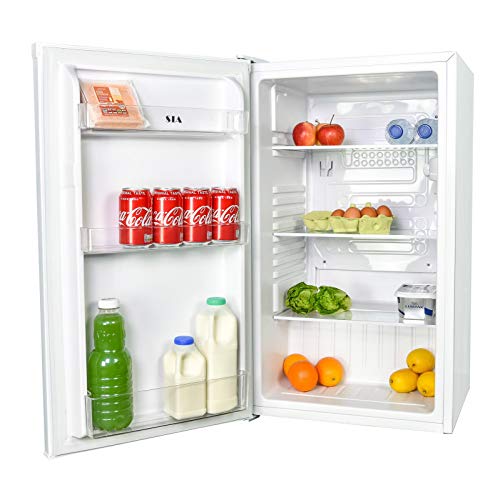13 Things You Should Know About Fridges That You Might Not Have Known

Understanding Refrigerators: A Comprehensive Guide
Refrigerators, often referred to as fridges, are essential devices in contemporary homes and industrial establishments. They play a vital function in protecting food and beverages, guaranteeing they remain fresh and safe for usage. Throughout the years, advancements in innovation have transformed the simple fridge into an advanced device that comes geared up with numerous features and functionalities. In this post, we will check out the various kinds of refrigerators, essential functions to consider when purchasing one, and maintenance pointers to extend its life expectancy.
Types of Refrigerators
When it pertains to fridges, there is a plethora of options available in the market. Each type accommodates different requirements and choices, making it vital for customers to understand their characteristics. Below is a summary of the main kinds of refrigerators:
| Type | Description | Pros | Cons |
|---|---|---|---|
| Top-Freezer | A conventional design with a freezer compartment above the refrigerator section. | Cost-efficient, familiar design | Restricted storage area for fresh food |
| Bottom-Freezer | Functions a freezer compartment located at the bottom for easier access to fresh food. | Ergonomic design, more fresh food space | Freezer may need bending to access |
| Side-by-Side | Split vertically, with the freezer on one side and the refrigerator on the other. | Convenient access to products, sufficient storage space | Narrow storage bins |
| French Door | Combines a bottom freezer with double doors for the refrigerator area, offering flexibility. | Stylish design, easy access to foods | Higher price point |
| Compact Fridge | Smaller systems developed for limited spaces such as dorm rooms or offices. | Space-efficient, portable | Minimal storage capability |
| Smart Fridge | Geared up with Wi-Fi connection and touch screens, enabling users to handle groceries digitally. | State-of-the-art functions, energy-efficient | Costly and might require updates |
Key Features to Consider
When purchasing a refrigerator, it's important to assess specific functions to guarantee it meets your requirements. Here are key aspects to think about:
Size and Capacity
- Ensure the fridge fits your kitchen area.
- Consider the overall capability based on your home needs.
Energy Efficiency
- Try To Find ENERGY STAR rankings to ensure energy performance, which can save money on electrical power expenses.
Cooling Technology
- Examine if the fridge uses standard cooling, dual cooling, or advanced technologies like inverter compressors for much better performance.
Storage Options
- Assess shelving versatilities, crisper drawers, and adjustable compartments for effective storage and company.
Complete and Design
- Pick a finish (stainless steel, matte, etc) that matches your kitchen design. Keep in mind to think about the total style, whether sleek or traditional.
Smart Features
- Consider wise fridges if you desire functions like temperature level control by means of an app, inventory tracking, and alerts when the door is exposed.
Maintenance Tips for Refrigerators
Proper maintenance can substantially extend the life of a refrigerator. Here's a list of important upkeep practices:
- Regular Cleaning: Keep the interior clean and without spills and expired products. Monthly cleaning is recommended.
- Check Temperature Settings: Ensure the refrigerator is set in between 35 ° F and 38 ° F, while the freezer should be at 0 ° F to keep food safety.
- Clean Condenser Coils: Dust and debris can build up on the coils, decreasing performance. Cleaning them every six months is advisable.
- Inspect Door Seals: Regularly inspect the door gaskets for wear and tear. An excellent seal is critical for keeping temperature.
- Thawing: In older designs, thaw the freezer regularly to avoid ice buildup. Refrigerators Sale -day fridges included auto-defrost functions.
- Keep Vents Unobstructed: Ensure airflow is not blocked by items, which can restrain cooling effectiveness.
- Monitor Food Storage: Properly store foods and avoid straining the fridge, which can limit airflow.
Frequently Asked Questions (FAQs)
How long do refrigerators usually last?
- Most refrigerators last between 10 to 15 years, depending upon the model and upkeep.
What can I do to keep my fridge running effectively?
- Regular cleaning, inspecting temperature level settings, and preserving proper ventilation can boost efficiency.
Is a clever fridge worth the investment?
- If you typically cook, amuse, or need advanced features such as remote temperature control and inventory tracking, the investment may be beneficial.
Can my refrigerator cause high electrical power costs?
- Inefficient models, poor maintenance, or leaving the door open can cause increased electricity intake.
What's the difference in between a top-freezer and a bottom-freezer model?
- A top-freezer fridge has a freezer section above the fridge, while a bottom-freezer model has a freezer drawer at the bottom for ease of access to fresh food.
Refrigerators are essential in modern kitchen areas, serving not only as storage for perishables however likewise reflecting advancements in technology and convenience. With the myriad options available, comprehending the types, features, and maintenance can empower customers to make educated decisions. Correct care can guarantee that a fridge stays efficient and practical for several years, eventually enhancing the overall food storage experience in the home. Whether selecting an elegant French door model or a compact fridge for a studio apartment, consumers today are geared up with the understanding to choose the ideal device for their needs.

